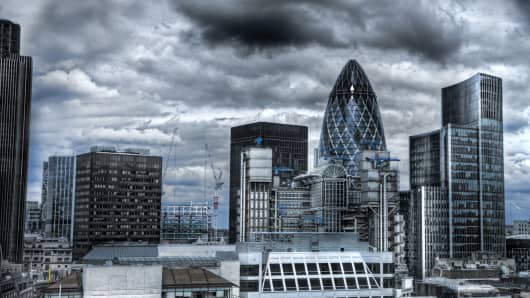Despite a spate of upbeat economic data for the U.K. over recent weeks, wages in the country have seen one of the steepest falls in Europe, according to new data.
Wages after inflation have fallen by 5.5 percent in the U.K. since 2010, according to House of Commons figures - the fourth biggest slide of any European Union (EU) country. Only the Netherlands and peripheral nations Greece and Portugal suffered bigger declines in hourly pay, the data - which were requested by Britain's opposition Labour Party - showed.
(Read more: UK economy in good shape, more positive news unveiled)
Across the EU as a whole, average wages fell 0.7 percent, but there was good news for workers in some countries. Wages in Germany increased over the same period, with hourly pay rising 2.7 percent, and even France - which slipped into its second recession in four years in May – saw wages rise by 0.4 percent over the last three years.
The data come despite a string of positive economic surveys for Britain, indicating that its recovery is becoming more entrenched. On Wednesday, the Bank of England raised its growth expectations for the country, while figures released last Friday showed the U.K's trade deficit narrowed in June and its construction sector rebounded in the second quarter of 2013.
(Read more: UK 'Brixit' – have the chances increased?)
But Cathy Jamieson MP, Labour's shadow Treasury minister, said the figures showed working people in the U.K. were faring worse than those in most of Europe.
"Despite out-of-touch claims by ministers, life is getting harder for ordinary families as prices continue rising faster than wages," she said, adding that people on middle and low incomes had also seen tax rises and cuts to tax credits.
Prime Minister David Cameron's Conservative Party, however, argued that Labour was highlighting its own record.
"Today's squeeze on living standards is a direct result of Labour's disastrous economic policy that got us into this mess," said Conservative business minister Matthew Hancock.
—By CNBC's Jenny Cosgrave;.Follow her on Twitter @jenny_cosgrave



